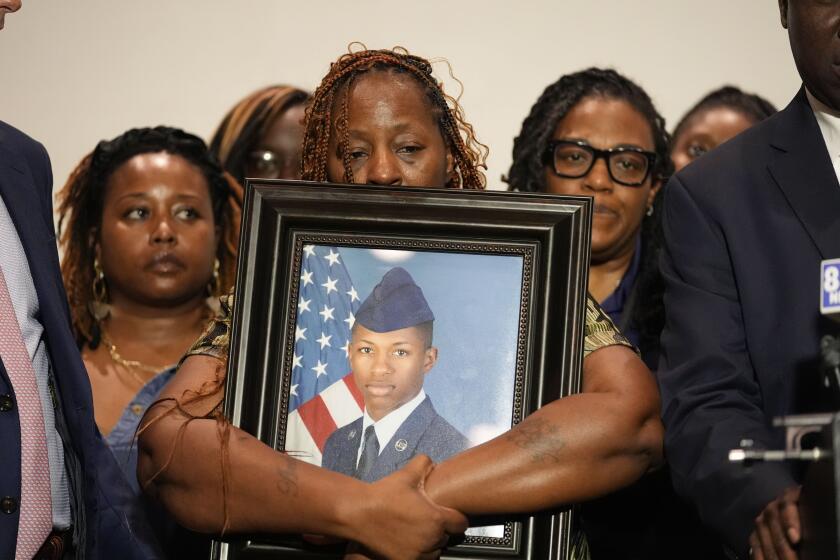Arms Cost Iran $12 Million, Via Swiss Bank, Wright Says : Byrd Calls Operation ‘Clumsy’
Iran paid more than $12 million for weapons it purchased from the United States, House Majority Leader Jim Wright said today as he and other congressional leaders accused the Administration of violating the law by not informing Congress of the deal.
Leaders of both houses, emerging from closed-door sessions with CIA Director William J. Casey and White House officials, denounced the Iranian operation, but Casey insisted the Administration had violated no laws.
Senate Democratic leader Robert C. Byrd said: “I find on the basis of what we heard that this whole operation, its genesis and the carrying out of it, was incredibly clumsy and amateurish.”
2,008 Missiles Shipped
Wright told reporters that 1,000 of the 2,008 TOW missiles bought from the United States were gathered in San Antonio last February for shipment. Others were shipped separately, he said.
“All were paid for by Iran--$12 million plus,” Wright said.
He said he had been told, “They deposited money in a Swiss bank.” He said he didn’t know if the deposit had been in the form of cash or was a check.
Wright and Byrd said the Administration deliberately avoided informing Congress about the existence of the covert operation in a timely fashion, a violation of the law.
“Oh, no, no, no,” Casey responded to reporters as he was leaving.
Change in Advisers Urged
Meanwhile, the outgoing Republican chairman of the Senate Foreign Relations Committee, Sen. Richard G. Lugar of Indiana, called for President Reagan to bring in some new advisers.
“The Reagan White House is not falling apart, but it needs to be strengthened. They need to bring in some big leaguers to run things,” he said. “The Republican Senate gave them a good deal of protection these past six years, but that shield is gone.”
Wright, a Texas Democrat who is likely to be House Speaker next year, said that other than the United States and Israel, “several other countries” have shipped arms to Iran. But he said these shipments were not necessarily connected to the efforts by the United States to improve U.S.-Iranian relations and free American hostages held in Lebanon.
U.S. Complicity Learned
“We have learned about people from other countries who have been involved in shipments (of arms) with the condoning of the United States and the complicity of the United States in some instances,” Wright said.
And he said these countries “felt, at least, that they were abiding with the wishes of the United States” in shipping arms to Iran.
Wright said Casey assured members of the House Intelligence Committee that there are no other cases in which the CIA has been ordered to withhold information about a covert operation from Congress.
Wright also said Casey confirmed reports that Atty. Gen. Edwin Meese III reviewed the President’s order directing the CIA to withhold information about the Iran operation from Congress and that Casey complied with it.
He said there was no point in badgering Casey about that.
Problem ‘at Higher Level’
“The problem lies at a higher level than that,” Wright said. “The problem lies with the determination of someone in the executive branch that the President doesn’t have to abide by the law unless he wants to.”
Rep. Henry J. Hyde (R-Ill.) emerged from the private briefing and said, “I think there is an unresolved difference of opinion on the interpretation of the law. I think there was no violation of the law.” And, referring to the key word used by the Administration’s critics, he said: “ ‘Timely’ is a word of art. The law in that regard was deliberately drawn in a vague fashion.”
More to Read
Start your day right
Sign up for Essential California for news, features and recommendations from the L.A. Times and beyond in your inbox six days a week.
You may occasionally receive promotional content from the Los Angeles Times.






